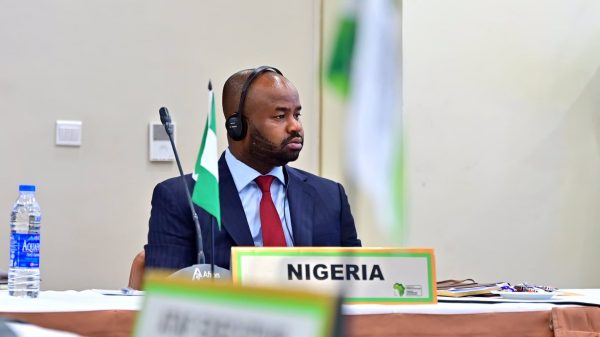Abuja, Nigeria
The International Monetary Fund (IMF) has put up a recommendation of completely phasing out electricity subsidy to President Bola Tinubu-led administration.
This recommendation came as Nigerians are still battling the hardship and negative impact of fuel subsidy removal in May 2023 by the present administration.
The IMF in a report ‘Post Financing Assessment (PFA)’, believed that the federal government had overwhelmed itself.
The body said that the total removal of fuel and electricity subsidies by the federal of government must be implemented to free up fiscal resources.
According to IMF, the recommendation would put in place the mechanism to restore macroeconomic stability in the country.
In the last quarter of 2023, the government said electricity subsidy between January and September of the year gulped N375.8 billion while power consumers paid a total of N782.6bn for electricity during the same period.
The IMF commended the federal government on the reforms it had implemented so far but reiterated that the fuel and electricity subsidies should be removed.
“The new administration has made a strong start, tackling deep-rooted structural issues in challenging circumstances.
“Immediately, it adopted two policy reforms that its predecessors had shied away from: fuel subsidy removal and the unification of the official exchange rates. Since then, the new CBN team has made price stability its core mandate and demonstrated this resolve by dropping its previous role in development finance.
“On the fiscal side, the authorities are developing an ambitious domestic revenue mobilization agenda. Like many other countries, Nigeria faces a difficult external environment and wide-ranging domestic challenges.
“External financing (market and official) is scarce, and global food prices have surged, reflecting the repercussions of conflict and geo-economic fragmentation.
“Per capita growth in Nigeria has stalled, poverty, and food insecurity are high, exacerbating the cost-of-living crisis.
“Low reserves and very limited fiscal space constrain the authorities’ option space. Against this backdrop, the authorities’ focus on restoring macroeconomic stability and creating conditions for sustained, high and inclusive growth is appropriate.
“The CBN has set out on a welcome path of monetary tightening. The Governor has committed to making price stability the core objective of monetary policy, and the CBN has taken actions to mop up excess liquidity.
“Continuing to raise the monetary policy rate until it is positive in real terms would be an important signal of the direction of monetary policy.
“The government’s focus on revenue mobilization and digitalization would improve public service delivery and safeguard fiscal sustainability. The envisaged reduction in the overall deficit in 2024 would help contain debt vulnerabilities and eliminate the need for CBN financing. Temporary and targeted support to the most vulnerable in the form of social transfers is needed, given the ongoing cost-of-living crisis. Fuel and electricity subsidies are costly, do not reach those that most need government support and should be phased out completely,” IMF said.
